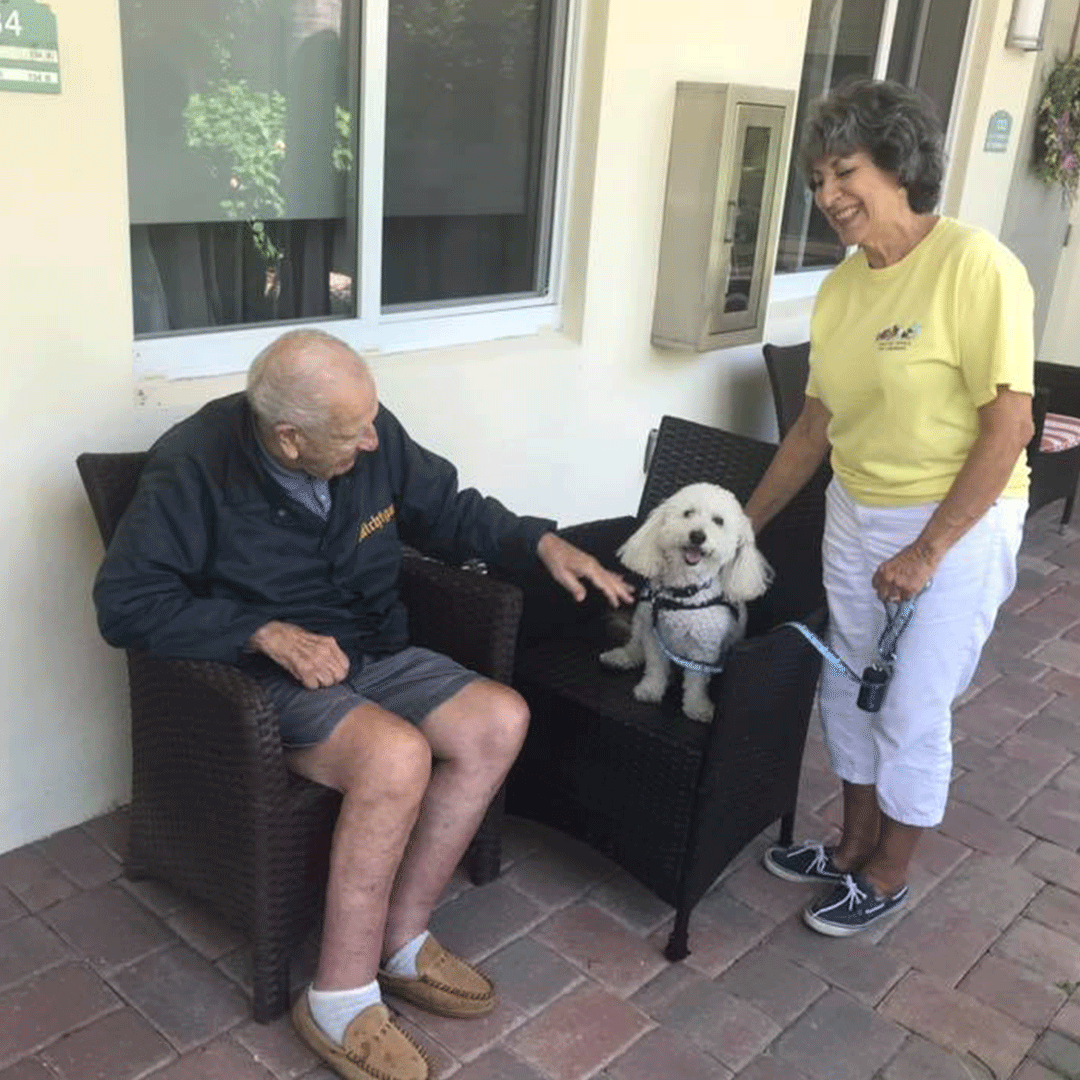Dementia is a medical condition that impacts each patient differently, and the mood swings experienced by the patient can be overwhelming for a caregiver. It is challenging when a loving parent suddenly exhibits violent anger or becomes abusive. For most people, learning more about where the behaviors originate from – and not taking them personally – can help to restore a more even-keeled and natural relationship. But no matter how well people learn to cope, aggression and abuse from dementia patients is difficult to witness and even harder to deal with rationally.

While aggression is common in dementia patients, many of those with cognitive challenges actually exhibit the exact opposite behavior. A profound sense of sadness, apathy or depression may also accompany dementia, and self-isolating behaviors may be prevelant as well. With no opportunity to make plans for the future, the dementia patient may sit quietly for hours or even days on end. Home maintenance, upkeep and chores are often ignored, and they may fall behind on their bills. In fact, many patients feel a loss of desire to do anything at all. Still, another side effect of dementia is much more troubling and volatile – that of anger and aggression.
Dementia Behavioral Issues
Many conflicting feelings can afflict a dementia patient. Some of the more difficult emotions include combativeness, agitation, irritability, or inappropriate behavior. This is due to vascular damage in the brain, rendering the stimulus response function inadequate.
To put it another way, when a healthy adult is provoked, they can typically manage their response and act in a socially acceptable manner. However, dementia patients often react outside of societal norms, and their diminished cognitive capability may result in undesired consequences.
When behavior problems result in developing dementia, there are a several factors to consider:
- The caregiver can feel overwhelmed and exhausted, not to mention heartbroken.
- The onset of dementia can cause legitimate safety concerns from family members.
- Dementia patients often act without considering the potential consequences.
- Anger can evoke violent actions, especially if a convenient weapon is nearby.
Stubborn or Willful Attitudes
Any parent of toddlers can confirm that willful behavior is not always caused by dementia. However, when a willful attitude and aggression related to dementia occur simultaneously, it becomes nearly impossible for your aging parent to be reasonable. Those with dementia typically lack impulse control, and they can be very stubborn and unyeilding.
Another common dementia behavior is t oshow complete apathy about life until you ask them to do something they don’t want to – then they can blow up into anger. For instance, your parent may sit alone in a chair all day and not care about fixing themselves a meal. However, when you try to feed them or ask them to help you cook, they can suddenly snap out of their fog and become furious because you are forcing them to do something. These violent swings in emotion often come without warning and can be quite disconcerting.
These emotions may grow more dramatic as the day progresses, because of a dementia-related behaviorknown as sundowning.
At A Banyan Residence, we know that taking care of a loved one with dementia is a tough but rearding endeavor – but there may come a time in the future when it is more advantageous for everyone involved to seek out professional assistance. If you are looking into the best memory care facility for your senior loved one, call today for an appointment and private tour.
